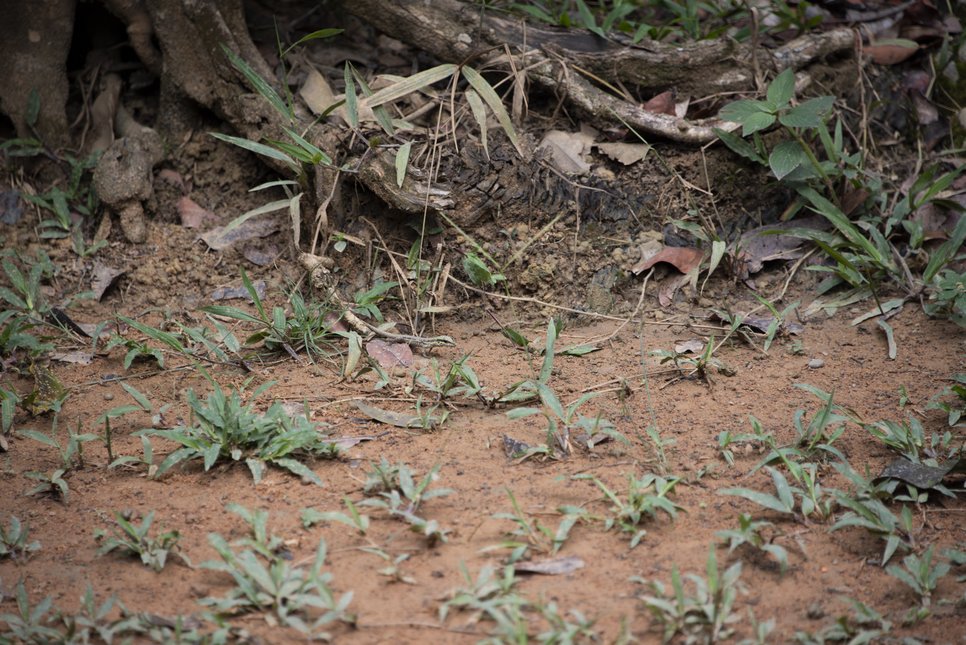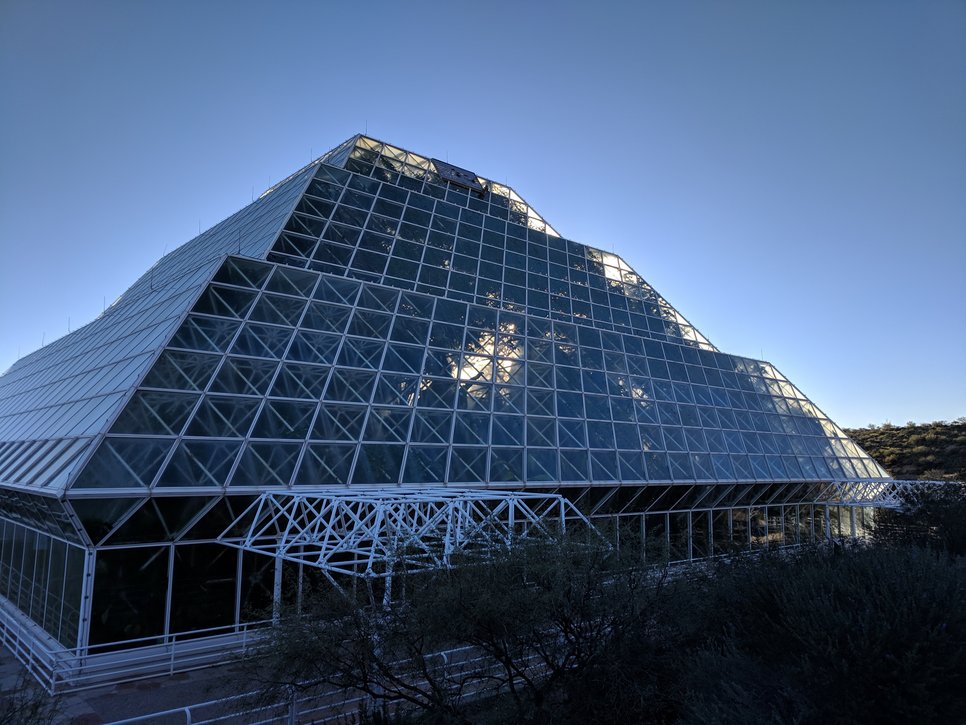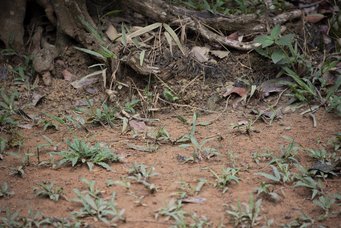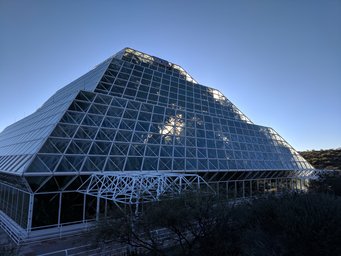Drought stress alters the function of rainforest soil
Extensive measurement campaign in the experimental rainforest of the Biosphere 2 highlights the effects of drought and rewetting on soil biogenic volatile organic compound (VOC) fluxes.
The extensive measurement in the experimental rainforest of the Biosphere 2 highlights the effects of drought and rewetting on soil biogenic volatile organic compounds (VOC) fluxes. When soil moisture drops below 19 percent, the rainforest soil capacity to uptake atmospheric VOCs reduce and the soil became a source of VOCs. Position specific 13C-pyruvate labelling experiments reveal a connection with soil microbial activity. The integration of soil VOC fluxes could lead to more precise predictions in climate models.

Prolonged drought has a significant impact on the extent to which rainforest soils can emit and consume biogenic volatile organic compounds (VOCs). This was the finding of an international research team, including scientists from University of Freiburg and Max Planck Institute for Chemistry, who studied the effects of drought and rewetting on soil VOC fluxes. The associated measurement campaign was conducted from September 2019 to January 2020 at the U.S. research facility of the Biosphere 2. It was part of the project B2WALD (Biosphere 2 Water Atmosphere And Life Dynamics). The latest results were recently published in the journal Nature Communications.

Behavior of soil microbes is crucial
“The data evaluated suggest that prolonged drought stress progressively reduces the capacity of the soil to consume atmospheric VOCs and, at same time, the soil starts to be a source of VOCs. We were able to identify a soil moisture content of 19 percent as a critical threshold below which this shift in soil behaviour occur” says the first author Dr. Giovanni Pugliese. Position specific 13C-pyruvate labelling experiments in the experimental rainforest attribute the observed effect to the activity of soil microbes, which, under drought conditions, produce decisively more atmospheric VOCs than they consume. These findings are discussed in detail in a companion paper published in the journal of Nature Microbiology (https://www.nature.com/articles/s41564-023-01432-9).
In response to soil rewetting after the prolonged drought period, the emission of some VOCs actually intensify. “In response to soil rewetting, our measurements have demonstrated a rapid, albeit brief, abiotic emission peak of carbonyl compounds and a slow, but more persistent biotic emission peak of sulfur-containing compounds” Pugliese adds.
Climate impacts: Observation of soil VOC fluxes enable more reliable future predictions
The measurement campaign in the experimental rainforest, which lasted several months, collected data around the clock under carefully controlled environmental conditions. The analysis of the data was able to show clear interactions between drought-impacted environmental factors and soil VOC fluxes. Particularly with regard to climate impacts such as heat and drought, it illustrates the relevance of understanding these relationships. According to Prof. Dr. Jonathan Williams VOC group leader at the Max Planck Institute for Chemistry, “We now know that drought stress can profoundly affect the behaviour of VOC fluxes to and from soil. Since current climate models predict that the Amazon rainforest region will suffer more frequent and prolonged droughts in future, we need to incorporate these newfound soil effects into atmospheric models to improve ecosystem response predictions, and simulations of future regional atmospheric chemistry and climate”.
The B2WALD campaign was led by Prof. Dr. Christiane Werner, Professor of Ecosystem Physiology at the Faculty of Environment and Natural Resources at the University of Freiburg, and Dr. Laura Meredith, Director of the Biosphere 2 Research Center and Assistant Professor at the School of Natural Resources and the Environment at the University of Arizona in the US. The soil VOC fluxes measurements were conducted by scientists from the Max Planck Institute for Chemistry in Mainz, Germany, led by Prof. Dr. Jonathan Williams.
This paper is the result of the excellent collaboration between the University of Freiburg and the University of Arizona in the US and the Max Planck Institute for Chemistry. Websites: www.mpic.de/person/123640/4586221 und www.mpic.de/4586680/biosphere.
Dr. Giovanni Pugliese was a part of Christiane Werner's team at the Faculty of Environment and Natural Resources at the University of Freiburg and he is currently a postdoctoral researcher at the Max Planck Institute for Chemistry in the Prof. Dr. Jonathan Williams’ research group. His research activity focuses on the measurement of soil volatile organic compound (VOC) fluxes at the Amazon rainforest measurement station ATTO.
The measurement campaign was financed by funds from the ERC Consolidator Grant, which Christiane Werner received from the European Research Council in 2015 to implement the ERC project VOCO2. The B2WALD project is a building block of VOCO2.

